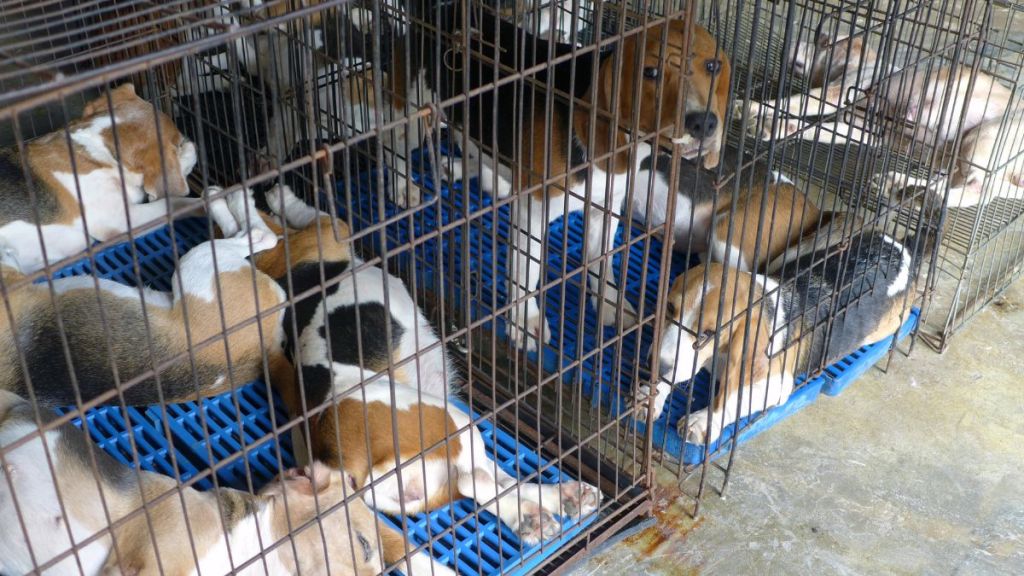A breeder in the United States has been fined a record-setting $35 million after 4,000 Beagles were rescued from its facilities. Envigo bred Beagles for laboratories to conduct drug experiments on them. According to BBC News, the 2022 dog rescue was one of the biggest rescue efforts in the U.S.
Breeder Envigo fined historic $35 million after 4,000 Beagles rescued
About 4,000 Beagles were rescued from the Envigo facilities in August 2022. The U.S.-based breeder was previously charged with animal rights violation and animal cruelty by the Department of Justice after it found out several canines were being killed instead of being taken to the vet. They were being put down for basic health issues that could be easily treated with some medical help.
Moreover, investigators discovered that the canines were being fed maggot-infested food, some of which also contained feces. What’s worse, nursing Beagles weren’t given any food at all. After the 4,000 canines were rescued, shelters across the U.S. joined hands to find forever, loving homes for the Beagles. The rescue mission was one of the biggest in the country to date.
On June 3, the Department of Justice fined the breeder a historic $35 million, making it the largest fine issued under the Animal Welfare Act, per BBC News. Envigo RMS LLC pleaded guilty on Monday. The breeder’s parent company, Inotiv, has to pay a $22 million criminal fine. Additionally, they have to pay $3.5 million to the National Fish and Wildlife Foundation.
Inotiv must also pay $1 million each to two animal welfare organizations. In addition, they have to spend about $7 million improving their facilities and ensuring their personnel are well-trained. Attorney Christopher Kavanaugh noted that the problem stems from Envigo prioritizing convenience and commercial gain over following the law and doing things right. The breeder’s business culture not only resulted in the dogs’ ill-treatment but also contaminated the waterways.
Inotiv addressed the case in a statement released on Monday, noting, “…by not making the necessary infrastructure upgrades and hiring the requisite staff, we fell short of our standards for animal and environmental welfare…”






